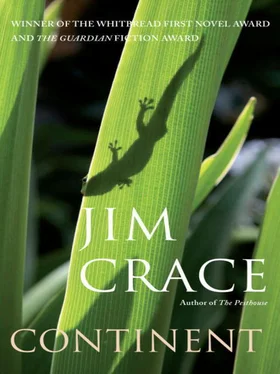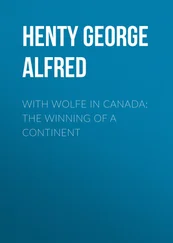‘There and beyond is a seventh continent — seven peoples, seven masters, seven seas. And its business is trade and superstition.’
PYCLETIUS, Histories, IV, 3
CONSIDER your inheritances, fellow students. Enumerate and evaluate. You are the sons and daughters of rich men. Who else but rich fathers could spare the money for tuition fees, for examination bribes, for graduation robes? Calculate the value of those family businesses — the import/export companies, the truck and bus firms, the riverside farming enterprises, the chicken and egg franchises, the Rest House chains, the strings of market booths. Include, also, the lands in town and country, the houses in the New Extension, the investments in foreign banks. Subtract all personal bequests and divide the remainder by the number of sons and daughters born to your parents. And there you have it, a nice fat sum, your inheritance. Do not wish your parents dead. Long life and wisdom to them all. But be carefree — they cannot live for ever and, when they die, your comforts are assured. You are the legatees of thoroughly modern businessmen. You inherit wealthy manners, expensive accents, extravagant partialities. You talk of trips to Paris and New York; you sat in cafes, unembarrassed, and ordered wines and beers and shallow cups of coffee in French and English; you talked politics and business and literature; you made liaisons; at private dinner parties you were at ease with artichokes and avocados, with cigars and charades. For you this is one world. You are internationalists. This, too, is your inheritance. There are no frontiers to your ambition.
I LOVE so much to meet your fathers. They are unhurried. They are gently inquisitive. ‘Do I detect a forest accent, Lowdo?’ they ask me. ‘What are your family? Timber or farming? Who is your father? How many men does he employ? How many acres?’ We sit and contrive between us answers which invent a wide flat valley, a leisurely shoulder-deep river, a contented village of a thousand compounds. Six thousand acres of fertile ground provide nourishment for plantations of black-bark tarbony, fields of maize and sunflower, herds of milk cattle. At the benevolent centre of this paradise, my conjured father, his accountant and estate manager discuss agricultural strategies. From the airstrip a modest Cessna takes off for supplies. A pretty maid serves iced mint-water and honey cake. In the paddock my mother and sister canter on thoroughbreds.
‘Where does your father purchase his supplies?’ your fathers ask me. ‘Who markets his milk? Who buys his corn oil? Who processes his tarbony? Does he own his own mills or is the timber floated downriver and auctioned to merchants? Who handles his affairs in the city?’ These are questions I cannot answer. I shrug at your fathers and protest my ignorance. I do not have a head for names and figures, I tell them. I am too immersed in my studies, in the intricacies of Biology. ‘Why then,’ they insist, ‘is your father unknown to us? Does your father never come to the city? Our house is his house. Bring him to us. Let him see that his son keeps good company. Promise us, Lowdo, that you will bring your father to us.’
I cannot satisfy their suspicions. But I cross my legs and let them note expensive Rome-cut trousers, Spanish leather shoes. I rest my hands on the arms of their cane sofas and display the discreet and sparkling bracelet and the gold watch. Certainly my father is rich. Certainly I am from the country — consider my weatherbeaten forehead, my tough hands, my plosive accent. There is no concealing wealth and there is no concealing ancestry. If your fathers mistrust my sketch of life at home, then they do not care to press me or to embarrass me. ‘Lowdo is a dreamer,’ they say. ‘Either that or he has something to hide. Something governmental. Something military. Something worth a lot of money, that’s for sure. There’s gold on his land, maybe. Or orichalc. What a catch for some girl! All the time his inheritance multiplies. Our door is always open to young Lowdo.’
YOUNG LOWDO travels home once a year, fellow students, during the Harvest Vacation, while you are holidaying at your cottages on the Mu coast or flirting in Manhattan. There is the wide, flat valley which I have described and the lazy river. But still I am a long day’s journey from my homelands. I spend the night in the Rest House. The lorries go no further than here. The pretty maid that I have described to your fathers is not a complete concoction. She serves at the Rest House and sleeps with the lorry driver. I cannot say who lives in the large house with the veranda. There are no thoroughbreds, there is no airstrip. But this is paradise. When I was a child, I always thought so — the yellow cobs of maize, the golden discs of sunflower, the fat and perfect cows.
At dawn I leave my sleek city clothes with the warden and, dressed in a country tunic and sun cap, set off up the valley on a hire-mule. After a dozen kilometres (tired already, irritable) I leave behind the gummy smells of the tarbony plantations and climb through odourless thickets of thorn and acacia. Lizards scurry and freeze like sniff dancers on a wedding day. The cattle here are slimmer and more restless: their tails slap flies, their leather mouths and stomachs grind thorn needles and dry grass. They will not budge for the mule. They give way to nothing except the secret whistle of the cattle boy. These are the belted aurochs of the scrub-people, a chocolate-brown breed of cattle with a broad black waist. Their milk is rich in butterfat but their beef is slow to mature. Their dung spits and glows in the fire. Their hides are tough and oily — good only for buckets or shoes. Their cheese is as greasy and pliable as beeswax and tastes of wood.
The rich landowners of the valley keep away. They have no interest in these modest cattle and this worn land. Belted aurochs are a poor investment. The riverine cattle are fatter, more docile, more fertile. But here the herd is still the great provider — food and fuel, rough clothing and manure. No family can hope to survive without a dozen or so grazing cows with annual access to a bull. None tries. All are happily obsessed by livestock. Every beast is woven an intricate necklace of straw with its family signature of knots and loops. Tucked into each necklace, like a sporting favour, is a sprig of mullein to protect the cattle from sickness and sorcery. Mullein poultices are strapped to sore udders. Petals from the tall yellow spikes of mullein flowers are added reverently to cheese. Nowhere are there more superstitious people or more pampered animals. Nowhere in the land are there farmers less wealthy.
Your fathers shake their heads and marvel at my watch and bracelet and expensive clothes and extravagant education. If they could see me now, fellow students, on a mule amongst my neighbours, answering their greetings, skirting their lethargic cattle, then they would wonder even more at the source of my riches. Would they welcome me into their homes in this stiff tunic and peasant hat? Would they welcome my father if he came to town?
AT THE last village before the descent into the hollow where our family land is sited, I am called by the small son of a villager and led into their compound for refreshment. My hire-mule is watered and tethered well away from a tempting patch of tomatoes, melon and mullein. I am brought a bowl of perfumed water and a small pat of guest soap. The boy serves sweet mint tea and dishes of yoghurt and cucumber. They want to know about life in the city. I describe domestic refrigerators and air-conditioned stores, traffic and cinemas, tinned food and nightclubs, golf courses and elevators. I offer American filter cigarettes. All — from the boy to the grandmother — accept and puff on them studiously.
Читать дальше












